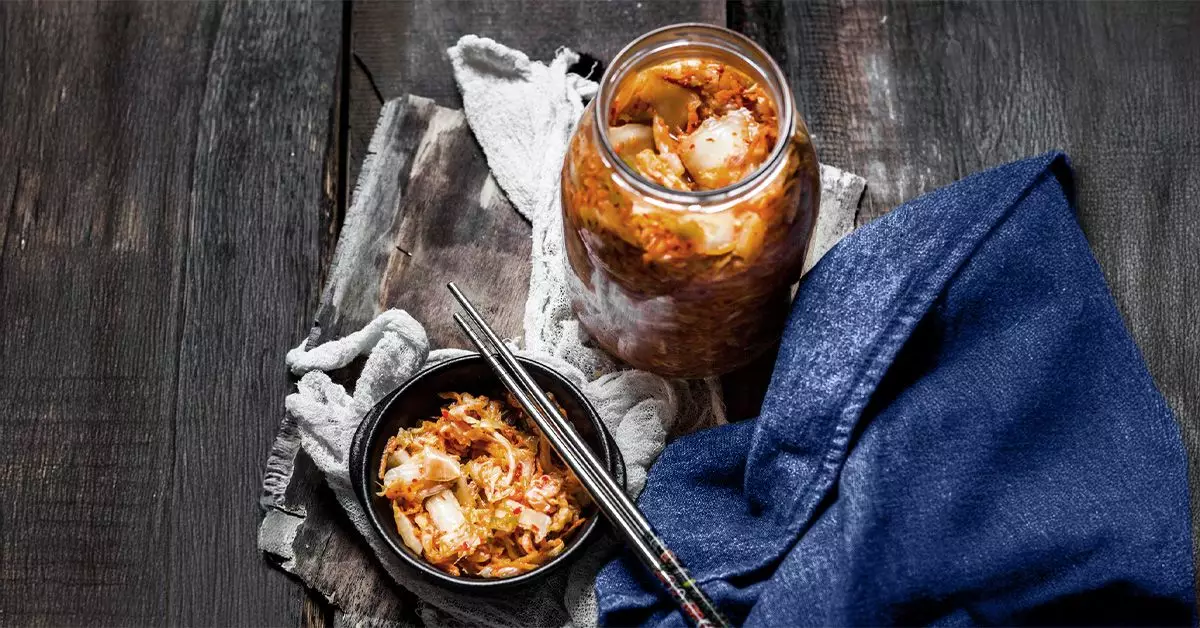Kimchi, a staple in Korean cuisine, represents more than just food; it embodies a rich cultural heritage. Traditionally made through the fermentation of vegetables like napa cabbage and radish, kimchi has been a quintessential part of Korean meals for centuries. The fermentation process not only enriches kimchi with flavor but also promotes the development of probiotics, which are widely recognized for their potential health advantages. However, this widespread consumption raises a complex biological question: can a beloved dish like kimchi also pose risks to health, particularly in the context of gastric cancer?
The Cancer Risk Debate
Recent studies surrounding kimchi have stirred a significant debate. While some research points towards a possible correlation between kimchi consumption and an increased risk of stomach cancer, the science is not definitive. The bulk of the contention revolves around two critical factors: the high salt content inherent in kimchi and the prevalence of Helicobacter pylori (H. pylori) infection within the Asian population, particularly among Koreans, who have an elevated risk of gastric cancer.
High salt intake is recognized as a risk factor for gastric cancer risk, and typical kimchi varieties often contain substantial amounts of sodium. A meta-analysis from 2020 synthesized findings from several studies, revealing that a daily increase of merely 40 grams of pickled vegetables could elevate gastric cancer risk by an alarming 15%. This has led some scholars to speculate if traditional kimchi recipes need modernization to minimize health risks while preserving cultural identity.
The Role of Probiotics
On the flip side, kimchi is lauded for its probiotic properties. Probiotics support gut health, potentially improving digestion and enhancing the immune system. However, the modern context in which we consume kimchi may complicate matters. As we introduce more processed foods into our diets, the beneficial bacteria from kimchi may not exert the same protective effects. When researchers isolated lactic acid bacteria from various kimchi types, they discovered the presence of enzymes like beta-glucuronidase and beta-glucosidase, known to be detrimental in the context of cancer development. This dichotomy presents a paradox: can the healthful aspects of kimchi override its potentially harmful side effects?
The H. pylori Connection
Another significant factor contributing to gastric cancer risk is the prevalence of H. pylori, a bacterium that infects the stomach lining and is known to foster inflammation. In the United States, only about 10-20% of the population carries this bacterium. Contrasting this, up to 80% of individuals in various Asian nations are infected. This discrepancy raises questions about the role of diet versus infection in cancer development and whether variations in lifestyle and environmental factors could be influencing these statistics.
While several studies hint at a link between diets high in salted and pickled foods and increased incidence of gastric cancer, the role of H. pylori infection often overshadows these findings. As individuals or populations face varying rates of exposure to this bacterium, the true intertwined nature of dietary habits and infection status remains elusive.
The Need for Comprehensive Research
Given the contested evidence surrounding kimchi and its potential cancer risks, further research is imperative. Understanding the interactions between culinary traditions, individual health profiles, and microbial influences like H. pylori will foster a comprehensive view of dietary impacts on health. While traditional practices should be celebrated, they must evolve, especially if the goal is to balance enjoyment of such treasured foods with long-term health consequences.
Potential screening for H. pylori infection could serve as an essential preventative measure for those at high risk. Since effective treatments exist for H. pylori, it’s feasible to address this issue proactively. As more individuals learn about their potential risk factors, such as their dietary habits and microbiome status, healthcare providers can guide patients in making informed decisions.
In essence, while kimchi holds a unique place in global cuisine and offers probiotic benefits, its association with gastric cancer remains a complex landscape of health risks and cultural considerations. The future might require us to find a synthesis of tradition and health that allows for both the enjoyment of kimchi and the mitigation of potential risks.

